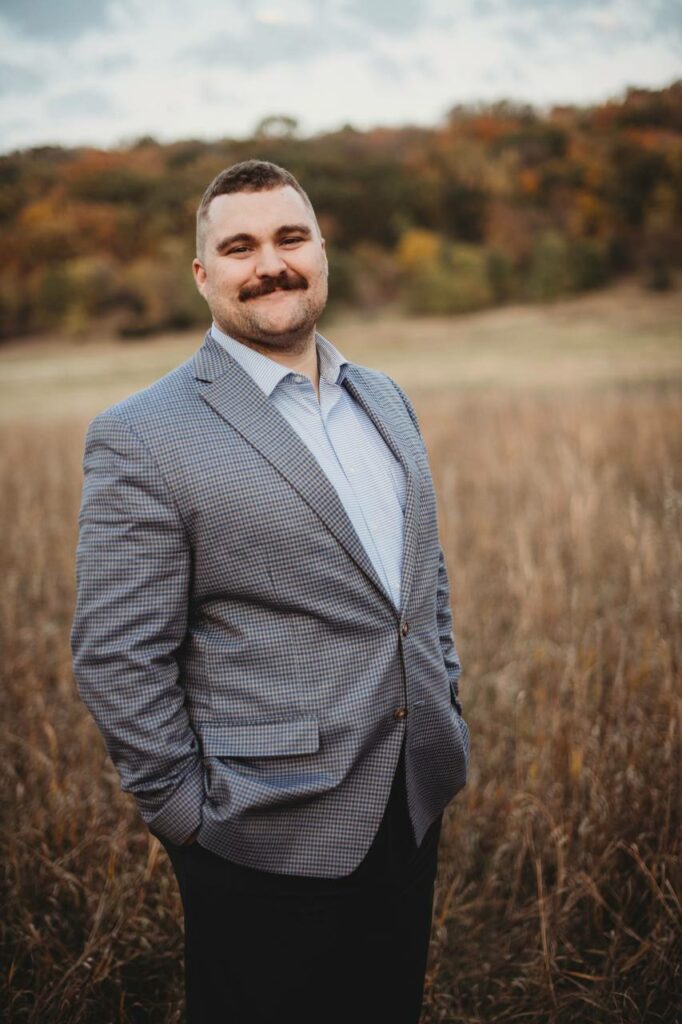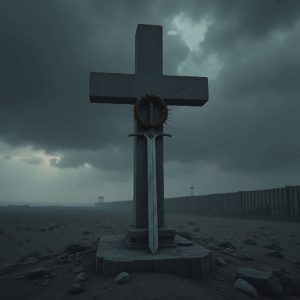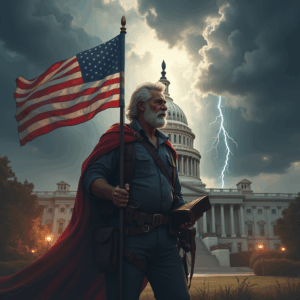Psalm 118
Introduction
Psalm 118 is about Jesus’s entry into Jerusalem to do battle with Satan, sin, and death. But it is also about His people and the wars they fight. It is also a Psalm about you. Even though the Psalm finds its ultimate fulfillment in Christ, pay attention to what is said. Put yourself in the shoes of the celebrant in this Psalm. And allow it to open up your eyes to what God has in store for you.
This Psalm If For And About All Believers (118:1-4)
1 Oh, give thanks to the Lord, for He is good!
For His mercy endures forever.
2 Let Israel now say,
“His mercy endures forever.”
3 Let the house of Aaron now say,
“His mercy endures forever.”
4 Let those who fear the Lord now say,
“His mercy endures forever.”
The Psalm begins with a call to worship. The people are to give thanks to Yahweh. The reason why is “because He is good and covenant faithfulness endures forever.” That word there, translated in the New King James as “mercy,” is also often translated as “lovingkindness.” It means God’s loyalty to His people, who He is joined to by covenant. God keeps His covenant perfectly, and because of this, He is worthy to be praised.
Israel as a people is called to proclaim that His covenant faithfulness endures forever. And the priesthood, the House of Aaron, is too. And finally, all the gentiles, all those people not joined to the people of Israel but who fear Yahweh, are now called to say, “His covenant faithfulness endures forever.”
This psalm is about all the people of God worshiping Him, giving Him praise and thanks, all because He is a God who keeps His promises. He does not let His people down.
The Lord’s Warrior Destroys His Enemies (v. 5-18)
The Psalm moves from the liturgical call to a first-person narrative. Like many Psalms, it is intentionally ambiguous. We are given a few details about what is going on that narrow things down a little, but it is still wide enough that anyone who is singing it can identify with all or parts of what is being said. The first part is especially true.
5 I called on the Lord in distress;
The Lord answered me and set me in a broad place.
Who hasn’t been in distress at some point and called upon the Lord and had Him answer them? It would be safe to say all of us have at one time or another.
6 The Lord is on my side;
I will not fear.
What can man do to me?
7 The Lord is for me among those who help me;
Therefore I shall see my desire on those who hate me.
This verse is a great encouragement to all who trust in the Lord. If God is for us, who can be against us? If you are a Christian, the God who made every atom in the universe and sustains it every single moment is on your side. What can man do to you?
That encouragement is important because, as the next verse shows, if you are a believer, you are going to have people who hate you. They hate your God, and they are going to hate you. But the Lord Himself is among your helpers, so those who hate you are not going to get the last laugh. The Lord vindicates His people before their enemies.
8 It is better to trust in the Lord
Than to put confidence in man.
9 It is better to trust in the Lord
Than to put confidence in princes.
The Lord is our helper, and our confidence is contrasted with what others put their trust in. They put their confidence in mere men, in princes, who think they are something because they have thermonuclear weapons and the most powerful military force in human history. We have the Triune God who made heaven and earth on our side. All their armies, all their power and might, their entire rotten civilization, He can turn to ash with a single softly spoken word out of His mouth. They have nothing. It is better to trust in the Lord.
The Psalm goes from the general to the slightly more specific in the next few verses:
10 All nations surrounded me,
But in the name of the Lord I will destroy them.
11 They surrounded me,
Yes, they surrounded me;
But in the name of the Lord I will destroy them.
12 They surrounded me like bees;
They were quenched like a fire of thorns;
For in the name of the Lord I will destroy them.
13 You pushed me violently, that I might fall,
But the Lord helped me.
14 The Lord is my strength and song,
And He has become my salvation.
Here we get to some conflict. The Lord’s warrior is surrounded by hostile foreign nations. Does he give up? Does he surrender? No. He’s got them right where he wants them. Their confidence is in princes; his is in the God who made heaven and earth. So what is he going to do? In the name of the Lord, he will destroy them. This is repeated for effect. There is no punctuation in Hebrew, so if you want big giant exclamation points, you repeat the point, or you double it with a parallelism. His enemies think they have him bottled up, but they are the ones who are trapped. Three times this is repeated. Three times surrounded, three times they are destroyed in the name of the Lord.
They attack violently, but what happens? Yahweh helps His warrior. He helps His warrior against his enemies. And how does the warrior respond? Yahweh is my strength, and Yahweh is my song. His strength is not in himself but in God alone. And his rejoicing, his boasting is not in himself but in God alone. Yahweh, Himself has become the warrior’s salvation.
That rejoicing overtakes the next few verses:
15 The voice of rejoicing and salvation
Is in the tents of the righteous;
The right hand of the Lord does valiantly.
16 The right hand of the Lord is exalted;
The right hand of the Lord does valiantly.
17 I shall not die, but live,
And declare the works of the Lord.
18 The Lord has chastened me severely,
But He has not given me over to death.
What do the homes of God’s people sound like? They sound like the voice of rejoicing and salvation. Notice how that just gets slipped in there subtly. This is how your home should sound. Full of singing and laughter and joy. The tents of the righteous are the party house!
And why? Because Yahweh’s sword hand is courageous. That, too, is repeated three times. It is to be lifted up and glorified. It is filled with valor. Yahweh, too, is a warrior.
And what does the warrior say because of Yahweh’s salvation? I shall not die but live, and declare the works of the Lord. God rescues His warrior from the clutches of death. And there is a purpose to that. He is rescued from death in order to declare the mighty deeds of Yahweh. What has happened instead? The warrior has been chastened severely but not given over to death. What does this mean? The things he is suffering, the pain, the wounds, all of it are not men doing anything to him ultimately, but whom? Yahweh. God chastens His people. God puts His people through the crucible to refine them. And the result is greater glory, for Him and for His people.
The Warrior Worships His God (v. 19-29)
The battle has been won and the warrior enters Yahweh’s Great City:
19 Open to me the gates of righteousness;
I will go through them,
And I will praise the Lord.
20 This is the gate of the Lord,
Through which the righteous shall enter.
21 I will praise You,
For You have answered me,
And have become my salvation.
Open to me the gates of Jerusalem, the righteous city, and I will go through them. And what is the warrior’s purpose in entering the city? It is to praise the Lord, to worship. The gate to the city is the gate of the Lord. Only the faithful can enter. And the purpose is repeated, he is going there to worship because God has rescued him.
The next verse should be a very familiar one, as it is repeated many times in the New Testament:
22 The stone which the builders rejected
Has become the chief cornerstone.
23 This was the Lord’s doing;
It is marvelous in our eyes.
24 This is the day the Lord has made;
We will rejoice and be glad in it.
It is at this point that a psalm intentionally written to be somewhat vague so that all of God’s people could identify themselves in it in one way or another now becomes very specific and precise. We live in light of the New Creation, so the answer to this question is revealed to us, but who is this all actually about? It is about Jesus! The stone which the builders rejected is Jesus. The rulers of Israel rejected Him. He’s not good enough for us! This Stone was not good enough for the run-down, rotting, decrepit building that was the Old Creation. So they cast Him in the garbage pile. Well, as it turns out, that Stone is the most important stone that the entire New Creation is built upon. This is a theme that runs throughout the New Testament. Matthew 21, Mark 12, Luke 20, Acts 4, and 1 Peter 2 all quote this Psalm and this verse. We should view the New Testament as the divinely inspired commentary on the Old Testament. It tells us in bold, neon letters exactly what is going on. This Psalm, which was sung for centuries by God’s people as they went to worship at Passover, was about Jesus the entire time. The day that the Lord has made is the day that rejected stone became the chief cornerstone the entire New Creation in Christ is built upon.
25 Save now, I pray, O Lord;
O Lord, I pray, send now prosperity.
26 Blessed is he who comes in the name of the Lord!
We have blessed you from the house of the Lord.
27 God is the Lord,
And He has given us light;
Bind the sacrifice with cords to the horns of the altar.
28 You are my God, and I will praise You;
You are my God, I will exalt You.
29 Oh, give thanks to the Lord, for He is good!
For His mercy endures forever.
The Psalm concludes with a prayer and a closing call to worship. The warrior asks God to save his people and to send prosperity. We often think that asking God for prosperity is icky and bad. But it isn’t. God is the one that sends rain and makes the crops grow; he wants us to ask for it. But that’s just the thing. This acknowledges that any prosperity we have is from Him.
We see in verse 26 the Palm Sunday call, “Blessed is He who comes in the name of the Lord.” That line is very well known. But its accompanying couplet is less well known. What is the response to the one who comes in the name of the Lord? He is blessed from the temple. That isn’t what happened to Jesus when He went to Jerusalem, but it does happen every single Lord’s Day in the New Covenant.
The Psalm ends with God’s people offering their sacrifice of praise and exalting God. And it closes with a final call to worship Yahweh for His goodness and loving-kindness.
Conclusion
This Psalm ultimately is about Jesus coming in triumph to Jerusalem as He is about to win the great victory as the Lord’s warrior. To this end, the chronology of the Psalm is backwards. The warrior destroying His enemies in the Name of Yahweh hasn’t happened yet. He has His victory over sin and death after the Triumphal Entry, and then He comes back to destroy the builders who rejected Him another 40 years after that. But the chronology and order of events don’t matter so much. All that is said about Him is true. He is a warrior, and God does vindicate Him in the face of His enemies, and He does destroy them.
Reading this Psalm in its full context does place a different spin on Palm Sunday. It puts the triumph back into the Triumphal Entry. Jesus is the warrior who comes in the name of the Lord and destroys His enemies in the name of the Lord. There is a reason Satan doesn’t want God’s people to sing the Psalms. He wants you to be totally ignorant of this part of the Bible. Why? Because the Psalms present an entirely different side of Jesus than you are allowed to see. It presents Jesus as the great warrior fighting for His people. It presents God’s people as a great army doing spiritual battles.
The Psalm is ultimately about Jesus, but it is also a Psalm for all of God’s people. As I said earlier, it is written in an intentionally broad style so that most of what is said we can recognize as being about us as well. And there are a few components of this Psalm that are especially relevant to us:
In this Psalm, God’s people have enemies that hate them.
This week a mentally ill woman, who believes she is a man, attacked a conservative Christian school and church and murdered three Christian children and three adult staff members. She left a manifesto presumably explaining her rationale that has not been released, and if it ever is, it will likely be heavily redacted. It appears very likely she murdered Christians because we oppose transgenderism.
In a nation as large as ours, ideological killings sometimes happen across the political spectrum. This is unfortunately nothing new. What is new is that instead of calling for mourning and support for the victims of the attack, every public institution in the country proudly and publicly proclaimed their support for the attacker. The TV news ran reports about how trans people are under attack right now. The White House press secretary also said this verbatim. And rather than speak out in support of the Christians who were murdered, the President issued a proclamation:
“Transgender Day of Visibility celebrates the joy, strength, and absolute courage of some of the bravest people I know — people who have too often had to put their jobs, relationships, and lives on the line just to be their true selves. Today, we show millions of transgender and nonbinary Americans that we see them, they belong, and they should be treated with dignity and respect. Their courage has given countless others strength, but no one should have to be brave just to be themselves. Every American deserves that freedom.”
A Proclamation on Transgender Day of Awareness, President Biden
He would go on to say how they are being targeted by “evil, discriminatory laws” (pushed by evangelical Christians) and facing violence. All while Christian parents were making funeral arrangements for their children who were targeted for execution by a trans woman.
I bring this up because it is crystal clear you have enemies who hate you and want you dead. They have massive power over every one of our lives.
When you read this Psalm, you should understand it is also about you, right now, today. Do you have enemies who hate you and want you and your children dead? Yes. Are you surrounded? Yes. Do they trust in their very, very powerful princes? Yes. Is this a chastening from the Lord? Yes.
So what does this Psalm teach us? That they can go ahead and trust in princes. Our God is on our side. They can go ahead and surround us. “In the name of the Lord [we] will destroy them.” God will give His people victory. They can push us, and they can do violence to us, but the God who created and sustains every particle in existence is our help. They are not going to win. There is nothing they can do to us with the Living God on our side. They can kill us, but the God who brings the dead back to life is not on their side, He is on ours.
That is what you must understand. The victory has been won, and the victory will be won. When you walk through the doors of the church, it does not seem like the glorious gates of ancient Jerusalem, and we do not have gilded walls like the temple, but you are actually entering a place far more glorious. You are entering the holy of holies of the New Creation. The gates of righteousness are opened to you for you to bind the sacrifice with cords to the altar. When you gather to worship, you are a triumphant people who are victorious over your enemies. You step in here to praise God for the victory. Because He keeps His promises, because He keeps His covenant with us, we have victory. So as you leave this place, remember when you are tempted to be discouraged, you are going to go up to the House of the Lord and pass through the gates of righteousness and worship the God who rescues His people and gives them the victory. In the Name of the Father, the Son, and the Holy Spirit. Amen.

Andrew Isker is the pastor of 4th Street Evangelical Church in Waseca, MN. He is a graduate of Minnesota State University and Greyfriar’s Hall Ministerial Training School, and he has served churches in Missouri, West Virginia, and Minnesota. He is the author (with Andrew Torba) of Christian Nationalism, and the author of the forthcoming book, The Boniface Option. Andrew, his wife Kara, and their five children reside in his hometown of Waseca, MN. He can be found on Gab @BonifaceOption.






